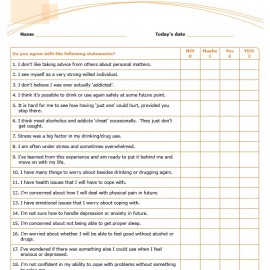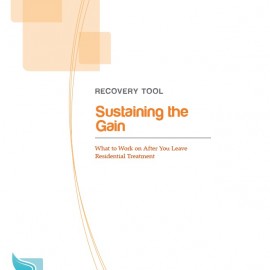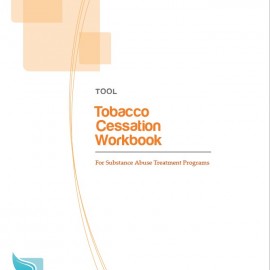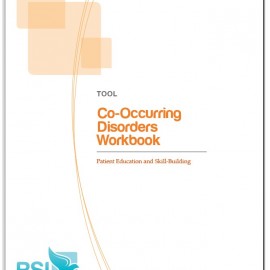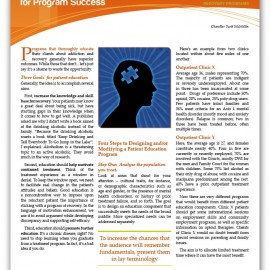Topic: patient education
“Uninformed” versus “Misinformed”
It’s often true that the folks who are technically most misinformed on an issue have the greatest degree of confidence in the rightness of their beliefs.
Topics: bad information, communication, patient education
Patient Education 101
Suppose you were in the audience listening to someone else deliver the talk. What would get your attention? What would you enjoy learning about?
Topics: clinician skills, patient education
Relapse Traps Inventory
Focusing on the areas most likely to challenge sobriety can help the person in recovery prepare positive responses.
Topics: maintaining sobriety, patient education, relapse
Sustain the Gain
The trick is to sustain the gains made in rehab in the vast uncontrolled experiment that is everyday life.
Topics: maintaining sobriety, patient education, relapse
Tobacco Cessation Workbook
Make specific changes that make it easier to live without tobacco. Your lifestyle should promote your physical, spiritual, and psychological well-being.
Topics: patient education, physical health, smoking, tobacco
Tips on Improving Addictions Education
Psychological theories that may be of great interest to professionals can seem like messages from Pluto to a rehab patient.
Topics: addiction and the brain, communication, early recovery, patient education, program development, therapies and tools
Build Client Decision-Making Skills With Football
The point of the game is to win. You win by knowing the odds and trying to take advantage of them. Even if that means resisting emotional impulses.
Topics: client engagement and motivation, counseling skills, decision making, patient education
Co-Occurring Disorders Workbook
The workbook is based on recognized disease-model treatment principles and can integrate readily in Matrix and other established EBP treatment protocols.
Topics: co-occurring disorders, patient education, program development
Patient Education: Powerful Tool for Program Success
A key breakthrough for recovering clients: The realization that, while they cannot control their disease, they can do a lot about their own recovery.
Topics: clinical management, patient education, program development




